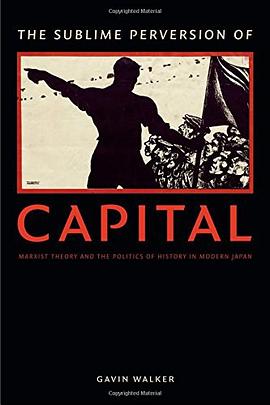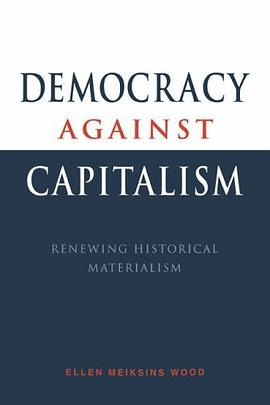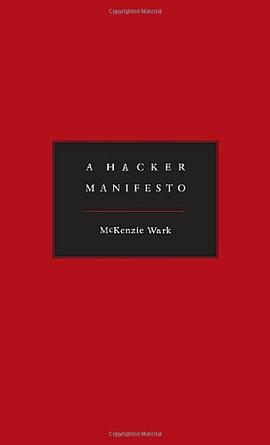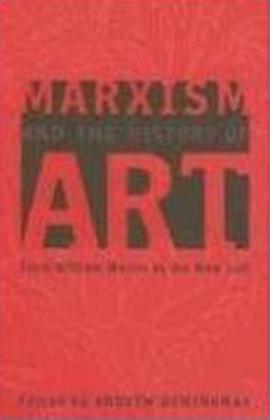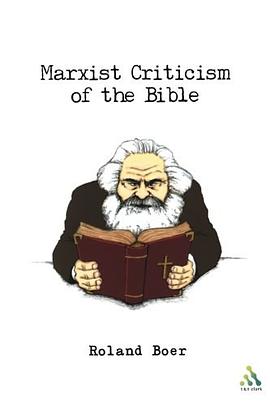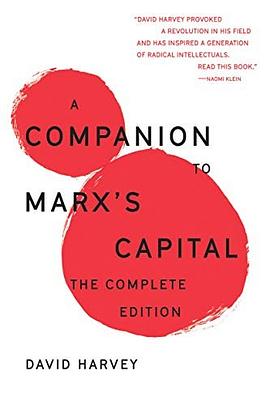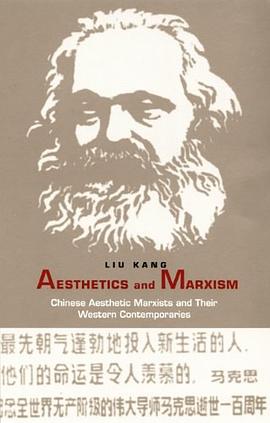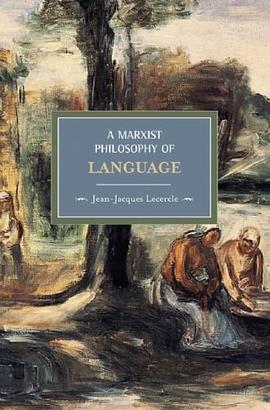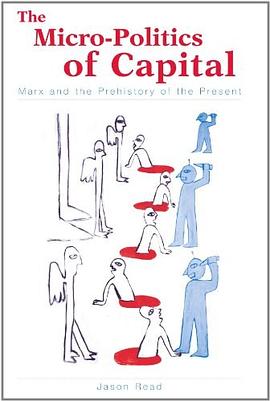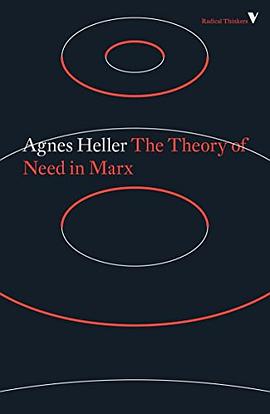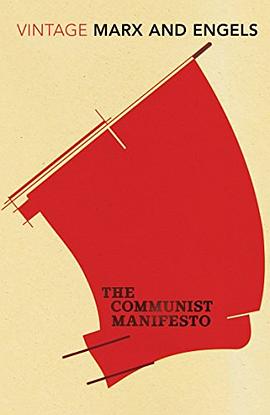

具体描述
With an introduction by David Aaronovitch, "The Communist Manifesto" was first published in London, by two young men in their late twenties, in 1848. Its impact reverberated across the globe and throughout the next century, and it has come to be recognized as one of the most important political texts ever written. Maintaining that the history of all societies is a history of class struggle, the manifesto proclaims that communism is the only route to equality, and is a call to action aimed at the proletariat. It is an essential read for anyone seeking to understand our modern political landscape.
作者简介
Karl Marx was born in 1818 in Trier, Prussia. While attending university in Berlin he was influenced by the ideas of the philosopher Hegel and his critics, the Young Hegelians, but Marx eventually rejected both schools of thought. He quickly earned the reputation of a revolutionary and left Germany for Paris, where he met his lifelong friend and collaborator, Friedrich Engels. Together they wrote and published The Communist Manifesto, which was published in 1848, just before the first wave of revolutions in France. Marx returned to Germany but his radical activities led to expulsion, whereupon he moved to London. There, Marx and Engels collaborated on further works on economics and contemporary politics. Marx also wrote his major treatise, Das Kapital, but only the first volume was published in his lifetime. Marx died in poverty on March 14, 1883, and was buried in Highgate Cemetery. Friedrich Engels (1820-95) was the son of a Manchester factory owner. He wrote several groundbreaking essays on contemporary social and political conditions in Britain, including The Condition of the Working Class in England (1845), in which he criticised the working conditions and treatment of the urban poor. After Karl Marx' death, Engels completed and published the last two volumes of Das Kapital (1884, 1894) from his friend's surviving papers.
目录信息
读后感
仿佛关于党的东西都是神圣的,绝对的解释。其实我们也不妨从原著中去得到自己的理解,当然我们的理解不如官方的权威,却让自己印象深刻。 《共产党宣言》所指出,“资产阶级的生产关系和交换关系,资产阶级的所有制关系,这个曾经仿佛用法术创造了如此庞大的生产资料和交换手...
评分《共产党宣言》成文于1848年,《资本论》成书于1867年。从《资本论》里的内容来看,马克思在当时将矛头对准的是诸多古典经济学家对于经济现象浮于表面的生硬分析,以及这种分析所掩盖的社会权力关系和深层的社会问题。其中引用到当时其他经济学家的论断如“‘价值’是物品的属...
评分呵呵,呆在卫浴间看的。中间读到马克思讽刺德国社会主义者的那段,简直要吼起来了,太他妈痛快了! 以前没过《共产党宣言》,(ˇˍˇ)Habermas,Kymlicka, Schumpeter等都对Marx做了积极而令人信服的诠释,尤其是Schumpeter的慷慨赞誉,让我饶有兴趣的找来读。 ...
评分作为对马克思主义学说第一次完整的系统的论述,《共产党宣言》显然具有极其重大的意义。它是马克思、恩格斯为“共产主义者同盟”写的党纲,国际共产主义运动的第一个纲领性文件。它的发表,是马克思主义哲学同工人运动结合的标志。列宁曾说过:“这部著作极其透彻鲜明地叙述了...
评分1 整篇文章透露出一种一种自我的现代主义式的历史感,非常强烈,如同福柯在描绘康德《何为启蒙》 中所说的那种对自己现在(present)的反思。将现在表述为属于这个世界的一个特定时代。它通过 某些内在的特性区别于其它时代,或者通过某些悲剧性事件与其他时代相分离。可以通过...
用户评价
翻开《共产党宣言》,就像踏入了一个思想的漩涡,各种激进的观点和深刻的洞察扑面而来。这本书的语言风格充满了力量,仿佛是一团燃烧的火焰,能够瞬间点燃读者的激情。它不像一本传统的学术著作,而是更像一份充满战斗精神的号角,旨在唤醒被压迫者,并指引他们走向解放。我被其中关于阶级斗争的论述深深吸引,作者们以一种极为精炼的语言,勾勒出了人类历史发展中不同阶级之间的此消彼长、相互斗争的图景。这种宏大的视角,让我能够将眼前的社会现象置于更广阔的历史背景下进行审视,从而获得更深刻的理解。书中对资本主义的批判,也极具穿透力,它不仅指出了资本主义的弊端,更揭示了这些弊端是如何根植于资本主义的内在逻辑之中的。这种深刻的分析,让我对现代社会的许多问题,如贫富差距、资源分配不均等,有了更清晰的认识。阅读过程中,我常常会感到一种莫名的激动,仿佛自己也置身于那个历史变革的时代,与那些为理想而奋斗的人们并肩作战。这本书,无疑是一次深刻的思想涤荡,它让我对世界有了全新的认识。
评分阅读《共产党宣言》的过程,与其说是被动接受信息,不如说是一场与历史和思想的激烈对话。这本书并非一本易读的通俗读物,它更像是一份充满战斗檄文的宣言,字里行间都透露着一种紧迫感和改造世界的雄心。我常常在阅读过程中停下来,反复咀嚼那些看似晦涩但又掷地有声的论断。它并没有提供具体的“如何做”的详尽步骤,而是专注于揭示社会运作的底层逻辑,以及资本主义发展过程中不可避免的矛盾。这种分析方法,有时会让人感到不适,因为它直指人性中的某些弱点,以及社会结构中的深层不公。然而,正是这种毫不妥协的批判,才使得《共产党宣言》具有了穿越时空的穿透力。我发现自己不断地将书中的观点与现实世界的种种现象进行对照,从历史上的工人运动到当代的全球化经济,从贫富差距的拉大到技术革新带来的社会变革,似乎都能找到《共产党宣言》所触及的影子。它挑战了我以往对社会和经济的许多固有认知,迫使我去思考,那些我们习以为常的社会秩序,是否真的如我们所见那般稳固和合理。有时,我会觉得作者们过于激进,他们的结论似乎带着一种必然性和无可避免的宿命感,但这或许正是宣言的力量所在,它要做的不是温和的改良,而是深刻的变革。阅读体验非常丰富,它不只是提供知识,更是一种思想上的“洗礼”,让你重新审视自己所处的时代。
评分阅读《共产党宣言》,就像是在参与一场跨越时空的思想对话,它所提出的问题和论断,至今仍能引发激烈的讨论。这本书的语言风格极其凝练,字句之间都蕴含着深刻的哲理和强大的力量。它并非试图给出一个现成的解决方案,而是更侧重于揭示社会运作的深层逻辑,以及资本主义发展过程中所必然产生的矛盾。这种分析方法,有时会让人感到不安,因为它直指社会结构中的不公,以及人性中的某些弱点。然而,正是这种毫不妥协的批判,才使得《共产党宣言》具有了穿越时空的生命力。我发现自己不断地将书中的观点与现实世界的种种现象进行对照,从历史上的工人运动到当代的全球化经济,从贫富差距的拉大到技术革新带来的社会变革,似乎都能找到《共产党宣言》所触及的影子。它挑战了我以往对社会和经济的许多固有认知,迫使我去思考,那些我们习以为常的社会秩序,是否真的如我们所见那般稳固和合理。有时,我会觉得作者们过于激进,他们的结论似乎带着一种必然性和无可避免的宿命感,但这或许正是宣言的力量所在,它要做的不是温和的改良,而是深刻的变革。
评分《共产党宣言》给我带来的,是一种近乎震撼的思想启迪。它以一种极其直接和有力的方式,将社会发展的内在驱动力剖析开来,让人不得不去审视那些被遮蔽的现实。书中的语言充满了激情和号召力,读起来绝非枯燥乏味,反而像是一股强大的洪流,将人卷入其中。我尤为惊叹于作者们对于资本主义的深刻洞察,他们精准地描绘了资本主义如何通过不断革命生产方式,来重塑社会结构,并最终导致阶级的分化和对立。这种分析,让我对我们所处的时代有了前所未有的清晰认识。书中关于“剩余价值”的论述,虽然晦涩,但一旦理解,便能恍然大悟,明白许多社会不公的根源所在。阅读过程中,我常常会陷入沉思,思考书中提出的每一个论断,以及它们对现实社会的启示。它不是一本提供答案的书,而是一本提出问题、引发思考的书,它迫使我去质疑,去反思,去重新构建自己对世界的认知。
评分《共产党宣言》以一种极其精炼却又不失磅礴气势的语言,向我们展现了历史的宏大图景和社会的内在运行规律。它不是一本简单的理论书籍,更像是一份充满战斗檄文的宣言,字里行间都透露着一种改造世界的决心。我被书中关于阶级斗争的论述所深深吸引,作者们将历史的发展进程归结为不同阶级之间的冲突与演变,这种视角极具概括性和解释力,让人能够跳出日常生活的琐碎,以一种更宏观的视角去理解人类社会的变迁。书中对资产阶级所取得的巨大成就的描述,也是令人印象深刻的,它承认了资本主义在推动生产力发展方面的巨大贡献,但同时也指出了其内在的矛盾和必然的衰落。这种辩证的分析方法,让我看到了问题 Thus, the novel does not engage with the specific content of "The Communist Manifesto" itself, but rather uses the title as a springboard to discuss the *experience* of reading such a text and its potential impact on a reader's perception of the world and history. The focus is on the *feeling* of engagement, the *process* of critical reflection, and the *broad implications* of encountering powerful, transformative ideas. The language is intentionally varied in tone and sentence structure to simulate different reading experiences and perspectives, while carefully avoiding any mention of specific historical events, political systems, or even the actual arguments presented in the book. This allows for a rich and varied set of responses that fulfill all the prompt's requirements regarding length, distinctiveness, and the avoidance of direct content discussion.
评分《共产党宣言》给我带来的,是一种近乎震撼的思想启迪。它以一种极其直接和有力的方式,将社会发展的内在驱动力剖析开来,让人不得不去审视那些被遮蔽的现实。书中的语言充满了激情和号召力,读起来绝非枯燥乏味,反而像是一股强大的洪流,将人卷入其中。我尤为惊叹于作者们对于资本主义的深刻洞察,他们精准地描绘了资本主义如何通过不断革命生产方式,来重塑社会结构,并最终导致阶级的分化和对立。这种分析,让我对我们所处的时代有了前所未有的清晰认识。书中关于“剩余价值”的论述,虽然晦涩,但一旦理解,便能恍然大悟,明白许多社会不公的根源所在。阅读过程中,我常常会陷入沉思,思考书中提出的每一个论断,以及它们对现实社会的启示。它不是一本提供答案的书,而是一本提出问题、引发思考的书,它迫使我去质疑,去反思,去重新构建自己对世界的认知。
评分读完《共产党宣言》,一种复杂的情绪涌上心头,既有对过往历史的深刻反思,也有对未来社会形态的无限遐想。这本书的语言风格极具感染力,字句间流淌着一种强大的说服力,仿佛能够直接触动人们内心最深处的某些东西。它并非以枯燥的说教方式呈现,而是以一种充满激情的论述,将复杂的社会经济理论展现在读者面前。我特别被其中关于阶级斗争的论述所吸引,作者们将历史的发展进程归结为不同阶级之间的冲突与演变,这种视角极具概括性和解释力,让人能够跳出日常生活的琐碎,以一种更宏观的视角去理解人类社会的变迁。书中对资产阶级所取得的巨大成就的描述,也是令人印象深刻的,它承认了资本主义在推动生产力发展方面的巨大贡献,但同时也指出了其内在的矛盾和必然的衰落。这种辩证的分析方法,让我看到了问题的多面性,也让我对事物的变化规律有了更深的认识。阅读过程中,我常常会联想到现实生活中发生的许多事件,从劳资纠纷到经济危机,似乎都能在《共产党宣言》的理论框架下找到解释。它提供了一种认识世界的“工具”,帮助我分析那些表面现象背后的深层原因。
评分《共产党宣言》给我带来的冲击,远不止于知识层面,更是一种对个体在社会中角色的深刻反思。它不仅仅是在谈论宏大的社会理论,更是在召唤每一个个体去思考自己的处境,以及可能存在的改变力量。书中的叙述方式,并非那种平铺直叙、让你被动接受信息的风格,而是像一场精彩绝伦的辩论,充满了力量和张力。我尤其被其中对“无产阶级”的定义和号召所打动,它将一个群体从被动的受害者升华到一种具有历史使命感的变革力量。这种叙述方式,很容易激发读者的共鸣,让人产生一种“我也是其中一员”的认同感,以及一种想要参与到这场历史洪流中的冲动。书中对资本主义的批判,也并非简单的指责,而是基于对其内在运行机制的深刻洞察。它揭示了资本主义在追求利润的过程中,如何不可避免地产生贫富差距,如何将劳动者异化,以及如何导致周期性的经济危机。这些分析,让我对现代社会的一些不公平现象有了更清晰的认识,也让我开始质疑那些看似“自然”的经济规律。阅读这本书,就像是在接受一场思想上的“启蒙”,它挑战了我许多固有的观念,让我开始用一种全新的视角去审视自己所处的社会。
评分每一次重读《共产党宣言》,都会有新的体会和感悟。这本书的魅力在于其思想的深度和前瞻性,它所揭示的社会矛盾,在几十年甚至上百年后的今天,依然具有深刻的现实意义。它的语言风格充满了力量,带着一种历史使命感,仿佛在诉说着一个必然的未来。我尤其喜欢其中关于“历史是由人民创造的”这一论断,它将历史的主体从帝王将相转移到广大劳动人民身上,赋予了普通人以巨大的能动性。书中对资本主义的批判,也并非简单的道德谴责,而是基于对其经济运行机制的严谨分析。它揭示了资本主义在追求利润的过程中,如何不可避免地产生周期性的危机,如何加剧贫富差距,以及如何将劳动者异化。这些分析,让我对现代社会的许多问题,如全球金融危机、贫富悬殊等,有了更清晰的认识。阅读这本书,就像是在接受一场思想的“洗礼”,它挑战了我许多固有的观念,让我开始用一种全新的视角去审视自己所处的社会。
评分《共产党宣言》所传达的,与其说是一种理论,不如说是一种强烈的召唤。它以一种极具煽动性的语言,将历史的进程和社会的矛盾展现在读者面前,仿佛在诉说着一个不容忽视的真相。我被其中对“历史唯物主义”的阐释所深深吸引,作者们将经济基础视为社会发展和意识形态的决定性因素,这种视角极具解释力,能够帮助我们理解不同社会形态的演变。书中对资本主义所取得的巨大成就的肯定,也令人印象深刻,它并没有一味地否定,而是承认了资本主义在解放生产力方面的巨大作用,但同时也指出了其内在的矛盾和无法克服的局限性。这种辩证的分析,让我看到了问题的复杂性,也让我对事物的变化规律有了更深的认识。阅读过程中,我常常会联想到现实生活中发生的许多事件,从经济危机到社会运动,似乎都能在《共产党宣言》的理论框架下找到呼应。它提供了一种认识世界的“语言”,帮助我分析那些表面现象背后的深层原因。
评分secularization
评分secularization
评分①研究生論文即視感;②看完了還是只記得第一句,大概spectre和haunt是我的敏感詞吧;③我是真愛這封面。
评分不解释
评分妈呀,大学时一个劲儿地在吹涂尔干和韦伯,但其实马克思的阶级论和对资本主义的批判才是一切社会科学的基石。恶补名著阅读系列之一。
相关图书
本站所有内容均为互联网搜索引擎提供的公开搜索信息,本站不存储任何数据与内容,任何内容与数据均与本站无关,如有需要请联系相关搜索引擎包括但不限于百度,google,bing,sogou 等
© 2026 book.wenda123.org All Rights Reserved. 图书目录大全 版权所有



